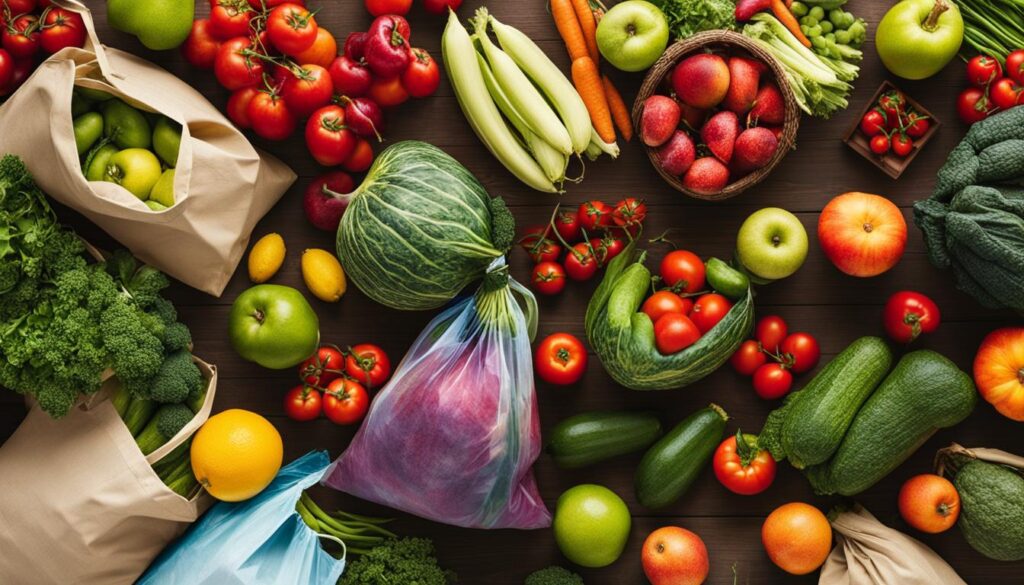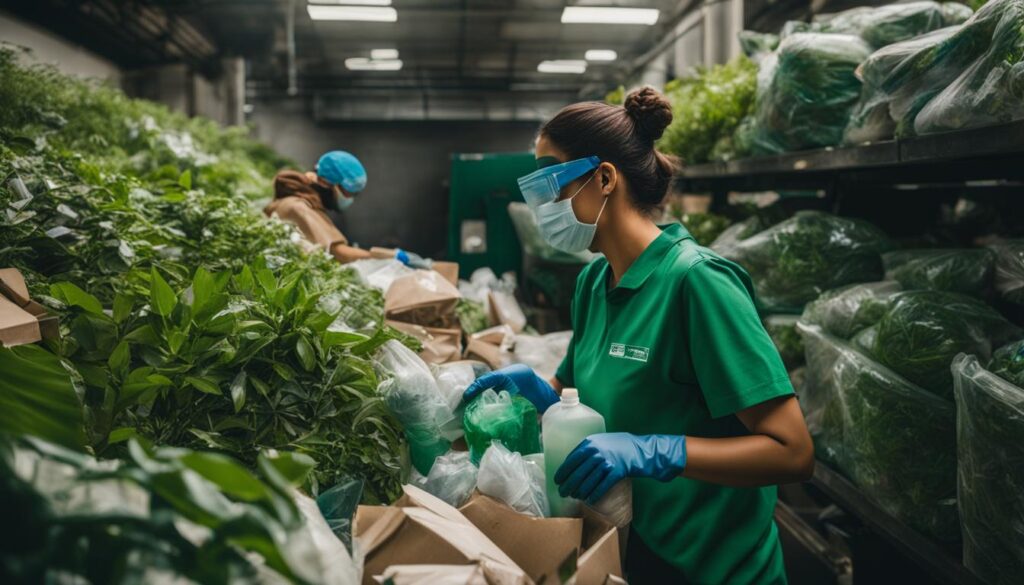Are you in your 20s and looking to make a positive impact on the environment? Adopting eco-friendly living practices is a great way to start. By embracing sustainable habits and incorporating green lifestyle choices, you can contribute to a healthier planet for future generations.
In this article, we will explore practical tips and actionable ideas to help you live a more sustainable life in your 20s. From reducing your carbon footprint to making conscious choices about your diet and daily habits, every small change can make a big difference. Adopting a sustainable lifestyle doesn’t have to be overwhelming; instead, it can be a rewarding journey filled with small yet impactful steps. By integrating sustainable lifestyle tips for adults into your routine, you can cultivate habits that contribute to a healthier planet. Let’s dive into simple strategies that you can implement today, ensuring that your efforts resonate not just now, but for generations to come.
So let’s dive in and discover how you can adopt eco-friendly living practices in your 20s!
Key Takeaways:
- Embracing sustainable habits in your 20s contributes to a greener future.
- Reducing your carbon footprint and making conscious choices about your diet are important steps.
- Practicing energy-saving habits and supporting local businesses promote eco-friendly living.
- Using natural beauty products and incorporating reusable bags reduce environmental impact.
- Start now and inspire others to join the movement towards sustainable living.
Be Mindful of Seafood Sustainability
When it comes to making sustainable choices in your diet, being mindful of seafood sustainability is crucial. The fishing industry has a significant impact on marine ecosystems, and unsustainable practices can lead to overfishing, habitat destruction, and harm to vulnerable species. To ensure that the seafood you consume is sourced responsibly, look for labels from credible third-party certification programs like the Marine Stewardship Council (MSC) or the Aquaculture Stewardship Council (ASC).
The MSC blue fish label is a recognized symbol of sustainable seafood. It guarantees that the fish has been caught from a well-managed fishery that minimizes its impact on the environment. By choosing seafood with this label, you are supporting sustainable fishing practices and contributing to the health of our oceans. The ASC certification ensures that the aquaculture operations follow responsible practices, such as protecting the water quality and minimizing the use of antibiotics and chemicals.
By being conscious of how seafood is caught and choosing ocean-friendly options, you can play a part in protecting marine ecosystems. When dining out or shopping for seafood, ask your servers or fishmongers about the origin and sustainability of the seafood they offer. Educate yourself about which species are overfished or caught using destructive methods, and opt for alternatives that are more sustainable. Encouraging responsible fishing practices and supporting sustainable seafood suppliers will help ensure a healthier future for our oceans and the diverse species that inhabit them.
Benefits of Choosing Sustainable Seafood:
- Preserves marine ecosystems and biodiversity
- Supports responsible fishing practices
- Reduces overfishing and habitat destruction
- Promotes healthier oceans for future generations
“The ocean is our planet’s life support system, and we all have a role to play in its conservation. By choosing sustainable seafood, we can make a positive impact on the health of our oceans and ensure a sustainable future for all.”
Reduce Consumption of Meat and Animal-based Products
Eating a plant-based diet is one of the most effective ways to reduce your carbon footprint and promote sustainability. By opting for sustainable protein sources and minimizing the consumption of meat and animal-based products, you can play a crucial role in mitigating environmental challenges and ensuring a greener future.
A plant-based diet focuses on foods derived from plants, including fruits, vegetables, whole grains, legumes, nuts, and seeds. These foods have a lower carbon footprint compared to animal-based products, as they require fewer resources such as land, water, and energy to produce.
Switching to a plant-based diet not only benefits the environment but also offers various health benefits. Plant-based protein sources like beans, lentils, tofu, and tempeh provide essential nutrients while reducing the risk of chronic diseases such as heart disease, diabetes, and certain types of cancer.
Eco-Friendly Protein Sources
Explore the wide range of sustainable protein alternatives to replace animal-based products in your diet:
- Legumes: Rich in protein, fiber, and various vitamins and minerals, legumes such as lentils, chickpeas, and black beans are versatile options for creating delicious and nutritious meals.
- Quinoa: This nutrient-dense grain is a complete protein source and a great substitute for rice or pasta. It is also gluten-free and easy to cook.
- Nuts and Seeds: Almonds, walnuts, chia seeds, and hemp seeds are excellent sources of protein and healthy fats. Add them to your meals, snacks, or smoothies for a boost of nutrition.
- Plant-Based Meat Alternatives: Explore plant-based meat substitutes like tofu, tempeh, seitan, and textured vegetable protein (TVP) to recreate your favorite meat-based dishes.
By embracing a plant-based diet and choosing sustainable protein sources, you can significantly reduce your carbon footprint and contribute to a more sustainable future.

Cook at Home to Reduce Food Waste
One of the most effective ways to reduce food waste and live a more eco-friendly lifestyle is by cooking at home. When you cook your meals, you have full control over the ingredients you use and the portions you prepare, minimizing the amount of food that goes to waste.
By planning your meals ahead of time and making a shopping list, you can buy only what you need, reducing the risk of food spoiling before you have a chance to use it. Additionally, cooking at home allows you to repurpose leftovers creatively, transforming them into delicious new dishes and minimizing food waste even further.
“Cooking at home not only helps in reducing food waste but also allows you to choose where and how your ingredients are sourced, making it a more sustainable choice.”
Another way to reduce food waste is by composting. Instead of throwing away vegetable scraps and other food waste, you can compost them to create nutrient-rich soil for your garden or potted plants. Composting not only helps divert waste from landfills but also reduces the need for chemical fertilizers. It’s a simple and effective way to close the loop and contribute to a more sustainable food system.
Benefits of Cooking at Home:
- Reduces food waste by buying only what you need
- Creative use of leftovers minimizes waste
- Allows you to choose sustainable ingredients
- Supports a more sustainable food system through composting
By embracing cooking at home and practicing food waste reduction techniques like composting, you can make a significant impact on reducing your environmental footprint while enjoying delicious and sustainable meals.
Shop Sustainably with Reusable Bags and Certified Products
One simple yet impactful way to live a more eco-friendly lifestyle is by making conscious choices when it comes to shopping. By using reusable bags and opting for certified sustainable products, you can significantly reduce your environmental footprint and contribute to a more sustainable future.
When going shopping, remember to bring your own reusable bags instead of relying on single-use plastic bags. According to studies, billions of plastic bags are discarded each year, polluting our oceans and landfills. By using reusable bags, you can help reduce plastic waste and protect our planet’s delicate ecosystems.
Additionally, look for products that carry certifications like Fairtrade Certified or Non-GMO Project Verified. These certifications ensure that the products are produced using sustainable practices, supporting farmers and producers who prioritize ethical and environmentally friendly methods. By choosing certified sustainable products, you can vote with your wallet and encourage more companies to adopt responsible production methods.

Benefits of Conscious Consumption
Embracing conscious consumption goes beyond just shopping sustainably. By being mindful of what and how much you consume, you can make a significant impact on the environment. Here are some advantages of practicing conscious consumption:
- Reduced waste: By purchasing only what you need and opting for products with minimal packaging, you can minimize waste that ends up in landfills.
- Lower carbon footprint: Supporting sustainable products and local businesses reduces the need for transportation and lowers carbon emissions.
- Support for ethical practices: When you choose products that prioritize fair trade, organic ingredients, and environmentally friendly production, you are supporting companies that value ethical practices.
- Promotion of a circular economy: By choosing products made from recycled or upcycled materials, you contribute to a circular economy that reduces the consumption of natural resources.
“The greatest threat to our planet is the belief that someone else will save it.” – Robert Swan
Remember, every small step counts when it comes to sustainable living. By shopping sustainably with reusable bags and certified products, you can be a part of the solution and create a greener future for generations to come.
Use Natural and Low-Impact Beauty Products
In your journey towards a more eco-friendly lifestyle, don’t overlook the impact of your beauty products. Switching to natural and low-impact beauty products can significantly reduce the environmental footprint of your daily routine. By opting for products that prioritize natural ingredients, sustainable packaging, and ethical sourcing, you can make a positive difference for the planet.
When choosing natural beauty products, look for certifications and labels that indicate their eco-friendly qualities. Organic certifications, such as USDA Organic or COSMOS Organic, ensure that the products are made with a high percentage of organic ingredients and are free from harmful chemicals. Additionally, certifications like Cruelty-Free or Leaping Bunny guarantee that the products are not tested on animals.
Another important aspect to consider is packaging. Look for brands that use minimal packaging or opt for packaging made from recycled materials. Some companies even offer refillable options, reducing the need for single-use packaging. By choosing products with low-impact packaging, you can help reduce waste and support companies that prioritize sustainability.
Finally, ethical sourcing is a crucial factor in determining the eco-friendliness of beauty products. Look for brands that prioritize fair trade practices and support local communities. By choosing products that are ethically sourced, you can ensure that the ingredients used are obtained in a sustainable and socially responsible manner.

Benefits of Using Natural and Low-Impact Beauty Products
- Reduced exposure to harmful chemicals: Natural beauty products are free from synthetic chemicals, reducing the risk of skin irritation and long-term health effects.
- Environmental conservation: By choosing products with sustainable sourcing and packaging, you contribute to the conservation of natural resources and reduce pollution.
- Support for ethical practices: Brands that prioritize ethical sourcing ensure fair wages and working conditions for communities involved in the production of beauty products.
- Positive impact on animal welfare: Choosing cruelty-free products helps promote a compassionate approach to beauty and supports companies that do not conduct animal testing.
“Switching to natural and low-impact beauty products not only benefits your skin but also helps protect the environment and support ethical practices.” – Beauty expert
Save Energy and Reduce Waste
Living a more sustainable lifestyle not only benefits the environment but also helps you save energy and reduce waste. By making conscious choices and adopting simple habits, you can contribute to a greener future. Here are some energy-saving tips, sustainable travel practices, and waste reduction strategies that you can incorporate into your daily life:
Energy-Saving Tips
- Turn off lights and unplug electronics when not in use to minimize energy consumption.
- Adjust your thermostat to conserve energy, and consider using a programmable thermostat for more efficient heating and cooling.
- Use natural light whenever possible and replace traditional light bulbs with energy-efficient LED bulbs.
- Insulate your home properly to reduce the need for excessive heating or cooling.
- Choose energy-efficient appliances and electronics that have earned the ENERGY STAR® certification.
Sustainable Travel Practices
- Opt for walking, cycling, or using public transportation instead of driving to reduce carbon emissions from transportation.
- Support local businesses and explore your own community to minimize the carbon footprint associated with long-distance travel.
- When traveling long distances, choose eco-friendly transportation options such as trains or buses whenever possible.
- Offset your travel carbon footprint by investing in certified carbon offset programs.
Waste Reduction Strategies
- Reduce single-use plastic waste by using refillable water bottles, reusable shopping bags, and bamboo or stainless steel straws.
- Compost food scraps and yard waste to divert organic waste from landfills.
- Recycle paper, plastic, glass, and metal products according to your local recycling guidelines.
- Avoid excessive packaging and choose products with minimal packaging or packaging made from recyclable materials.
- Donate or repurpose items you no longer need instead of throwing them away.
By incorporating these energy-saving tips, sustainable travel practices, and waste reduction strategies into your daily life, you can make a positive impact on the environment. Small changes in our everyday habits can add up to significant progress towards a more sustainable future.

Conclusion
Adopting eco-friendly practices in your 20s is not only beneficial for your personal well-being but also for the environment. By making small changes to your lifestyle, you can contribute to a greener future and promote sustainable living.
Start by being mindful of your seafood choices, opting for certified sustainable options that support a healthier ocean. Reducing your consumption of meat and animal-based products can significantly lower your carbon footprint and help combat pollution and resource depletion.
Cooking at home not only allows you to have control over your ingredients but also helps in reducing food waste. By composting food scraps or using them wisely, you can minimize waste and contribute to a more sustainable food system.
Shopping sustainably with reusable bags and supporting certified sustainable products also plays a crucial role in creating a greener future. Prioritize natural and low-impact beauty products to reduce the environmental impact of chemicals and packaging waste. Saving energy, practicing sustainable travel, and reducing waste in your daily life further enhance your eco-friendly practices.
By implementing these eco-friendly habits, you can create a positive ripple effect and inspire others to join the movement towards sustainable living. Together, let’s build a greener future for generations to come.
FAQ
What certifications should I look for when choosing sustainable seafood?
Look for labels from credible third-party certification programs like the Marine Stewardship Council or the Aquaculture Stewardship Council.
How can reducing meat consumption help lower my carbon footprint?
Factory-farmed animal protein has a high carbon footprint. By reducing meat consumption and incorporating sustainably sourced seafood, you can lower your carbon footprint.
How can cooking at home reduce food waste?
Cooking at home allows you to choose where and how your ingredients are sourced and reduces packaging waste. By composting food scraps or using them to make broth, you can further minimize waste.
How can I shop sustainably?
Bring your own reusable bags when shopping, look for certifications like Fairtrade Certified or Non-GMO Project Verified, choose local businesses over big chains, and reduce overall consumption.
Why should I switch to natural and organic beauty products?
Switching to natural and organic beauty products reduces the environmental impact of chemicals and packaging waste. Look for products with certification logos and prioritize ethically sourced ingredients.
How can I save energy and reduce waste?
Simple actions like walking or cycling instead of driving, turning off lights and unplugging electronics, and adjusting heating or cooling usage can save energy and reduce your carbon footprint. Sustainable travel practices, such as supporting local economies and avoiding major chains, also contribute to a more environmentally friendly lifestyle.
Why is adopting eco-friendly living practices important in my 20s?
Adopting eco-friendly living practices in your 20s can have a significant impact on both personal well-being and the environment. By making small changes, you can contribute to a more sustainable future and inspire others to join the movement towards sustainable living.
Can Adopting Eco-Friendly Practices Help in Managing Student Loan Debt?
Can adopting eco-friendly practices provide practical tips for student loan debt management? Yes! By making everyday choices that are environmentally-friendly, such as reducing energy consumption and waste, students can save money on utilities and daily expenses. Additionally, using sustainable transportation options, such as biking or carpooling, can save on fuel costs. These eco-conscious choices not only benefit the planet but also help in managing student loan debt.


Pingback: Achieving Financial Independence in Your 20s: A Realistic Plan – Straight Fire Money